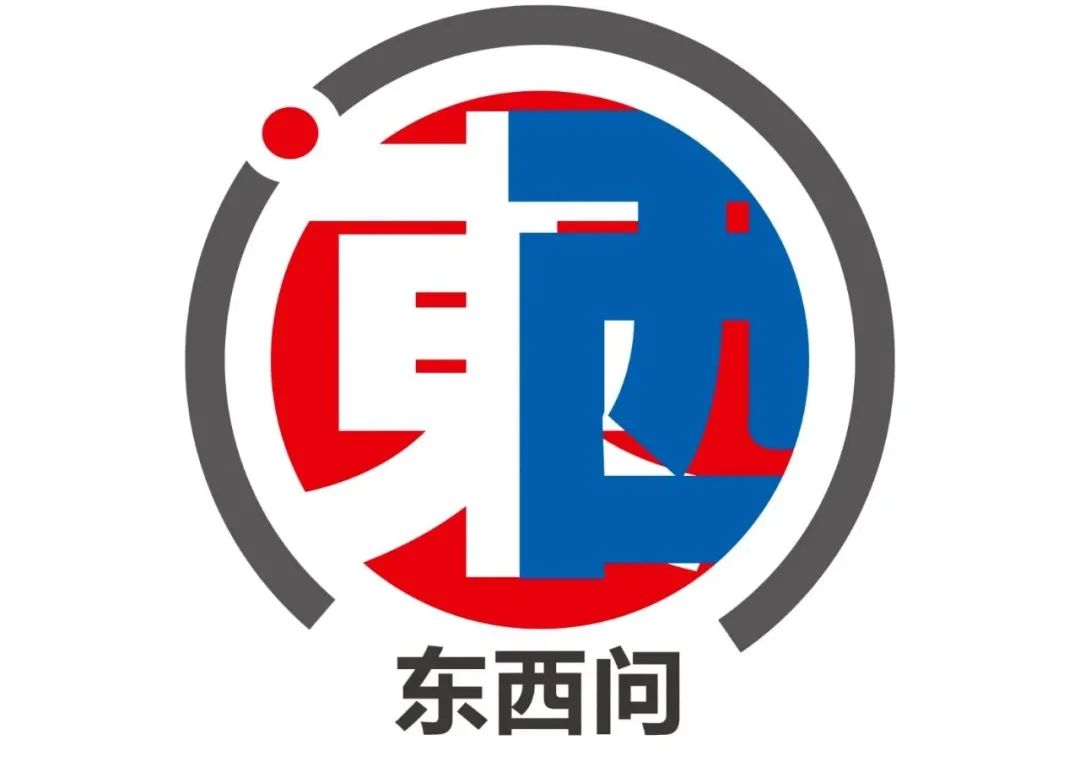Jun Legal Review丨Artificial Intelligence Ethics Review Is Officially Included In The Regulations —— Analysis Of The "Artificial Intelligence Technology Ethics Management Service Measures" Public Opinion Solicitation (Part 1): Background And Key Analysis
Jun Legal Review丨Artificial Intelligence Ethics Review Is Officially Included In The Regulations —— Analysis Of The "Artificial Intelligence Technology Ethics Management Service Measures" Public Opinion Solicitation (Part 1): Background And Key Analysis
Recently, the Ministry of Industry and Information Technology, together with the Central Cyberspace Affairs Office, the National Development and Reform Commission, the Ministry of Science and Technology, the Ministry of Agriculture and Rural Affairs, the Ministry of Culture and Tourism, the National Health Commission, the People's Bank of China, the State Administration for Financial Regulation, the Chinese Academy of Sciences, the Chinese Association for Science and Technology, etc., drafted the "AI Ethical Measures"

Author: Dong Xiao, Guo Jinghe, Zhang Xuyao, Rao Jiacheng
Recently, the Ministry of Industry and Information Technology, together with the Central Cyberspace Affairs Office, the National Development and Reform Commission, the Ministry of Science and Technology, the Ministry of Agriculture and Rural Affairs, the Ministry of Culture and Tourism, the National Health Commission, the People's Bank of China, the State Administration for Financial Regulation, the Chinese Academy of Sciences, the Chinese Association for Science and Technology, etc., drafted the "Artificial Intelligence Science and Technology Ethics Management Service Measures (Trial) (Draft for Public Solicitation of Comments)" (hereinafter referred to as the "AI Ethics Measures"), and publicly solicited opinions from the public on August 22 until September 22.
Part One
Release background
According to the explanation of soliciting opinions, the release of the Measures is to "deeply implement the spirit of General Secretary Xi Jinping's important instructions and instructions, implement the requirements of the "Global Artificial Intelligence Governance Initiative" and the "Action Plan for Global Governance of Artificial Intelligence", standardize the ethical governance of artificial intelligence technology, coordinate high-quality development and high-level security, and promote the high-quality development of the artificial intelligence industry."
As early as 2017, the "Notice of the State Council on Issuing the Development Plan for the New Generation of Artificial Intelligence" stated that the strategic goals were divided into three steps, including in terms of artificial intelligence laws, regulations, ethical norms and policy systems involving artificial intelligence, by 2020, "the ethical norms and policies and regulations in some fields were initially established"; by 2025, "the initial establishment of artificial intelligence laws, regulations, ethical norms and policy systems, and form artificial intelligence security assessment and control capabilities"; by 2030, "build a more complete artificial intelligence laws, regulations, ethical norms and policy system." In particular, "strengthen the research on legal, ethical and social issues related to artificial intelligence, establish a legal, regulatory and ethical framework to ensure the healthy development of artificial intelligence... Carry out research on artificial intelligence behavior science and ethics issues, and establish an ethical framework for multi-level judgment structure of ethical and morality and human-computer collaboration."
On June 17, 2019, the National New Generation Artificial Intelligence Governance Professional Committee pointed out in the document "The Principles of the Governance of New Generation Artificial Intelligence - Developing Responsible Artificial Intelligence" that "the development of artificial intelligence should be in line with human values and ethics" and put forward eight governance principles.
On September 25, 2021, the National New Generation Artificial Intelligence Governance Professional Committee issued the "New Generation Artificial Intelligence Ethical Norms", further clarifying six basic ethical norms, including improving human welfare and promoting fairness and justice.
On March 20, 2022, the General Office of the CPC Central Committee and the State Council jointly issued the "Opinions on Strengthening the Governance of Science and Technology Ethics" (hereinafter referred to as the "Governance Opinions"), proposing to "focus on strengthening scientific and technological ethics legislation in the fields of life sciences, medicine, artificial intelligence, etc., and promptly promote the elevation of important scientific and technological ethics norms into national laws and regulations."
On September 7, 2023, the Ministry of Science and Technology took the lead in several ministries and commissions jointly issued the "Technology Ethics Review Measures (Trial)" (hereinafter referred to as the "Technology Ethics Measures"), formally establishing my country's science and technology ethics review system covering all fields, and specifying in detail the review subject, scope of review and specific review procedures.
On August 21, 2025, the State Council issued the "Opinions on Deeply Implementing the "Artificial Intelligence " Action" (hereinafter referred to as the "AI Opinions"), again emphasizing the need to "improve the laws and regulations of artificial intelligence, ethical standards, etc., and promote the legislative work related to the healthy development of artificial intelligence."
The "AI Ethical Measures" released for soliciting opinions this time follows the guidance of the "Governance Opinions" and, based on the "Technology Ethical Measures", will refine and implement the ethical review system in the field of artificial intelligence.
Specifically, the AI Ethics Measures clearly use the "Technology Ethics Measures" as its reference basis, and are consistent with the "Technology Ethics Measures" in terms of core ethics principles, review subjects and review procedures, etc., ensuring the unity and connection of the system. At the same time, the "AI Ethics Measures" based on the particularity of artificial intelligence technology, identify ethical principles and compliance risks unique to the field of artificial intelligence, targeting the standardization of exclusive ethical issues such as data, algorithms, and automated decision-making in the field of artificial intelligence, and proposes to establish a service center to support the guidance and supervision of the ethical compliance of artificial intelligence.
Part 2
Interpretation of key points
Scope of theoretical review in the field of artificial intelligence
According to Article 2 of the AI Ethics Measures, the AI technology activities referred to in the Measures are "Artificial intelligence technology activities carried out within the territory of the People's Republic of China, which may bring challenges in scientific and technological ethical risks and challenges in life and health (such as artificial intelligence applications applied to disease diagnosis or medical devices), human dignity (such as evaluating individuals' ability, or artificial intelligence applications that simulate emotional interactions with humans), ecological environment (such as automated decision-making systems involving natural resource exploitation and environmental governance), public order (such as algorithm models with the ability to mobilize public opinion and guide social consciousness), sustainable development (such as algorithm models involving cross-regional resource allocation), as well as other scientific and technological activities that require artificial intelligence technology ethics review in accordance with laws, administrative regulations and relevant national regulations."
First of all, the current laws and regulations on artificial intelligence management, especially the "Interim Measures for the Management of Generative Artificial Intelligence Services", regulate "using generative artificial intelligence technology to provide services to the public in the People's Republic of China to generate text, pictures, audio, video and other content", while "the development and application of generative artificial intelligence technology does not provide generative artificial intelligence services to the public in the country" will not apply. The scope of regulation of the "AI Ethical Measures" is more extensive. In addition to providing services to the public, it also covers activities such as scientific research and technological development. It can be seen that from the perspective of artificial intelligence ethics, because it is the ethical orientation of ensuring artificial intelligence from the "roots" and needs to be considered and regulated from the research, development to application.
Secondly, the "AI Ethics Measures" special provisions on the field of artificial intelligence based on the four types of scientific and technological activities stipulated in the previous "Science and Ethics Ethics Measures" that "involves humans, experimental animals, bring ethical risks and challenges, and special provisions of laws and regulations". For example, scientific and technological activities involving experimental animals were not included. For example, the risk factor of human dignity is added to the assessment of whether there are ethical risks, which expands it into five aspects: "life and health, human dignity, ecological environment, public order, and sustainable development", so that the scope of review is more in line with the application and development direction of the field of artificial intelligence.
Finally, the AI Ethical Measures does not clearly define the scale of artificial intelligence technology activities, that is, as long as artificial intelligence technology activities that meet the scope stipulated in Article 2, ethical review is required. However, in practice, how to determine the above five ethical risks may exist will require review and judgment on a project-by-item basis.
Ethics Committee Establishment Standards
Article 9 of the "AI Ethics Measures" stipulates that "universities, scientific research institutions, medical and health institutions, and enterprises engaged in artificial intelligence technology activities" are the responsible entities for the artificial intelligence technology ethics management services of the unit. "Units with conditions should establish an artificial intelligence science and technology ethics committee."
For units that "conditionally" establish committees under Article 9, there is no further definition in the two ministries' measures for the time being and will be clarified in the subsequent context.
Regarding the constitution, composition and responsibilities and obligations of the committee, the AI Ethics Measures stipulate that the provisions of the Science and Technology Ethics (Review) Committee should be carried out in accordance with Articles 5 to 8 of the Science and Technology Ethics Measures.
According to Article 5 of the "Technology Ethics Measures", the committee's main responsibilities include seven items, from formulating and improving management systems and work norms, providing science and technology ethics consultation, guiding ethical risk assessment, carrying out ethical review, to cooperating with local and relevant industry authorities to carry out related work involving ethical review, etc.
Referring to Article 6 of the "Technology Ethics Measures", the committee shall formulate a charter and establish and improve institutional norms, work procedures and conflicts of interest management mechanisms such as review, supervision, confidentiality management, and archive management to ensure that ethical review is compliant, transparent and traceable.
According to Article 7 of the "Technology and Ethics Measures", the number of members of the committee should be no less than 7, with one chairman and several vice chairman. The committee should have members of different genders and non-unit units, and ethnic autonomous areas should have members who are familiar with the local situation. The term of office of a member shall not exceed 5 years and may be re-elected. In addition, Article 10 of the "AI Ethics Measures" specifically stipulates that the committee should include experts with corresponding professional backgrounds such as artificial intelligence technology, application, ethics, and law.
Article 8 of the "Technology and Ethics Measures" stipulates the requirements and work content that committee members need to abide by, including complying with the Constitution, laws and the constitution of the committee; participating in ethical review meetings on time and expressing opinions independently and impartially; abiding by confidentiality regulations such as state secrets and personal privacy; complying with conflicts of interest management regulations; participating in ethical review training on time, etc.
Article 11 of the "AI Ethics Measures" further recommends that local and relevant competent departments may establish professional artificial intelligence technology ethics service centers based on actual conditions and accept entrusted by other units to provide services.
Key contents of ethical review
Article 15 of the "AI Ethics Measures" puts forward five review priorities for the review of artificial intelligence technology ethics in a highly generalized way, including fairness and justice, controllability and credibility, transparency and interpretability, traceability of responsibilities, and the qualification requirements of scientific and technological personnel who intend to carry out artificial intelligence technology activities. The provisions of the above-mentioned focus of scientific and technological ethics review in the AI Measures only remain at the level of basic principles. The specific standards and requirements that ethics review must be met have not been further clarified, leaving room for refinement for the implementation of compliance in practice to a certain extent.
From the perspective of content relevance, the ethical review focus proposed in the "AI Ethical Measures" has certain similarities with the statutory compliance obligations that algorithm service providers need to fulfill as stipulated in the "Interim Measures for the Management of Generative Artificial Intelligence Services". When carrying out artificial intelligence technology activities regulated by the AI Ethics Measures, the company can refer to other relevant laws, regulations and specific requirements in national standards to transform the review focus of the AI Ethics Measures into enforceable compliance actions. For example, according to the requirements of the "Regulations on the Recommendation Management of Algorithms in Internet Information Services", algorithm service providers disclose the basic principles, purpose, and main operating mechanisms of algorithm services in appropriate ways; the "Guidelines for Special Governance List of Algorithms" issued by the Central Cyberspace Affairs Office in the special algorithm governance action further refined the public disclosure requirements of algorithm rules for special scenarios such as list sorting and labor employment. The company may refer to the specific requirements for algorithm disclosure and rules disclosure in the above provisions, which correspond to the review focus of "transparent and interpretable" in the "AI Ethical Measures".
However, as mentioned above, the application objects of the current relevant regulations are mainly service providers or technical supporters who provide services to the domestic public, and the scope of regulation of the AI Ethics Measures is wider. Therefore, although the review focus of the AI Ethical Measures is similar to other regulations, it does not necessarily mean that it has complied with all the requirements of the AI Ethical Measures for the ethical review focus while meeting the compliance obligations of other regulations. Therefore, it is still necessary to compare the requirements of the "AI Ethical Measures" one by one to meet the review key requirements, and continue to pay attention to the formulation and release of subsequent supporting rules, and timely adjust compliance strategies according to the content of the rules.
Ethical review work procedures
In terms of the specific process and procedure regulations of ethical review, since artificial intelligence technology ethical review is also a type of broader general science and technology activities, the procedures for artificial intelligence technology ethical review should also comply with the review procedures of general science and technology activities. Therefore, whether it is the application and acceptance procedures, the general review procedures, the simplified review procedures, or the emergency procedures, the AI Ethics Measures are designed by directly referring to the "Technology Ethics Measures" or recounting its relevant provisions.
Specifically, the unit carrying out the activities shall actively submit application materials to the committee for ethical review. After acceptance by the committee or service center, the corresponding review procedures shall be selected based on the risk assessment situation: the general procedure is applicable to high-risk scenarios, and no less than 5 members must hold a review meeting and make a review decision within 30 days after the application is accepted. The applicant may file a written appeal if there are any objections; the simplified procedure is applicable to scenarios such as the risk is not higher than the daily routine risks, the modification of the approved plan and the risk-benefit ratio does not increase, and the tracking and review of activities without major adjustments in the early stage. Only 2 or more members must be reviewed. If there are negative opinions, differences of opinions, etc., it will be converted to a general procedure.
In response to emergency situations such as public emergencies, the committee or service center requires the review to be completed within 72 hours (if it requires the review of experts, the review work is required to be completed within 36 hours), and it is allowed to consult consultants and experts if necessary to ensure the quality and timeliness of the review.
However, in view of the particularity of artificial intelligence technology activities, under the framework of following the "Technology Ethics Measures" working program design, the "AI Ethics Measures" has tailored a more detailed ethical review application material requirements for artificial intelligence technology activities. For example, the original "Science and Technology Ethics Measures" requires that the first and second items of the materials be modified from the original more general "Science and Technology Activities Overview" and "Science and Technology Activities Implementation Plan and Related Materials" to include the algorithm mechanism mechanism to be adopted, data usage type, source and acquisition method, cleaning method, test and evaluation method, the proposed software and hardware products, the expected application field and applicable population, and the specific details of the artificial intelligence project such as the expected application field and the applicable population, and the informed consent form that is not universally applicable to artificial intelligence Activities, biological samples, data information, experimental animal source description materials, etc.
Expert review system
Corresponding to the fourth section of the "Technology Ethics Measures", the third section of the "AI Ethics Measures" establishes an expert review procedure for the review of artificial intelligence technology ethics. That is, after the units that carry out artificial intelligence technology activities within the list pass the preliminary review by the committee or service center, they must apply for expert review and submit review materials in accordance with the "Technology Ethics Measures". The local or relevant competent departments organize a review expert group to review the compliance and rationality of the preliminary review opinions. After receiving the review opinion, the Ethics Committee or Service Center will make the final scientific and technological ethics review decision based on the review opinion, and will be responsible for the subsequent regular follow-up review of the activities carried out. The tracking interval generally does not exceed 6 months. If the technological ethical risks of the activities carried out undergo significant changes, the ethical review process needs to be restarted and an expert review is reapplyed.
The expert review procedures for artificial intelligence technology ethics are consistent with the review procedures for general science and technology ethics review in terms of review materials, review procedures, tracking and review matters. However, in terms of scope of use, artificial intelligence technology activities that require review of scientific and technological ethics experts will be limited to three categories.
The first category is the research and development of human-machine fusion systems that have a strong impact on human subjective behavior, psychological emotions, life and health. Through the above interpretation of the specific connotation of the scope of the review, we judge that artificial intelligence technology activities involving simulated emotional interactions with humans and analytical processing of human brain signals should be classified under this item. However, due to the lack of interpretation of relevant terms by existing regulations and administrative documents, we recommend that enterprises define whether the activity belongs to this content through advisory committees or service centers before actually carrying out scientific and technological activities, and need to conduct expert review.
The second type of activities is the research and development of algorithm models, applications and systems with the ability to mobilize public opinion and guide social consciousness. We noticed that the expression used in this article is highly similar to the trigger conditions of algorithm filing and generative artificial intelligence security assessment, that is, "has public opinion attributes or social mobilization capabilities." In this regard, based on our past project experience, in practice, we usually make a comprehensive judgment based on factors such as the object-oriented (for consumers or enterprises) provided by the algorithm model, whether the user scale has reached a certain level, and the public opinion attributes and social mobilization capabilities of the algorithm model's functions themselves. However, similar to the scope of the first expert review, there is still a lack of relevant interpretation on the specific meaning of "social consciousness guidance ability". In addition, it should be pointed out that algorithm filing and generative artificial intelligence security assessment procedures only regulate the situation of providing artificial intelligence services to the outside world, and the scope of application of the "AI Ethical Measures" also includes situations such as conducting artificial intelligence research and not providing services to the outside world. Therefore, we believe that the above standards cannot be completely copied for judgments regarding scientific and technological activities that do not provide artificial intelligence services to the outside world, and the specific standards still need to be further clarified by the regulatory authorities.
The third type of activities involves the research and development of automated decision-making systems with high autonomy in scenarios such as safety and personal health risks. To determine whether artificial intelligence technology activities belong to this item, we need to determine whether the application developed belongs to an automated decision-making system, that is, whether the application makes independent decisions without relying on manual intervention, and whether the application is aimed at application scenarios involving personal safety and life health, such as public transportation, pollution control, etc.
In addition, in order to ensure coordination with other regulatory measures such as the "Interim Measures for the Management of Generative Artificial Intelligence Services", the "AI Ethical Measures" stipulate that if the activities have implemented regulatory measures containing ethical compliance requirements in the fields of in-depth synthesis and algorithm recommendation, there is no need for expert review.
Summary: In the future, we will further analyze international trends related to artificial intelligence ethics review, as well as our observations and prospects. ”

Dong Xiao Partner
Business Areas
Telecom and the Internet
Privacy Protection, Network Security and Information Law
Company and M&A

Guo Jinghe Partner
Business Areas
Company and M&A
Privacy Protection, Network Security and Information Law

Zhang Xuyao

Rao Jiacheng

The "Carbon Neutrality Special Fund" is a public welfare project jointly initiated by Junhe Law Firm and Beijing Greening Foundation.
>> Scan the QR code to buy car stickers






